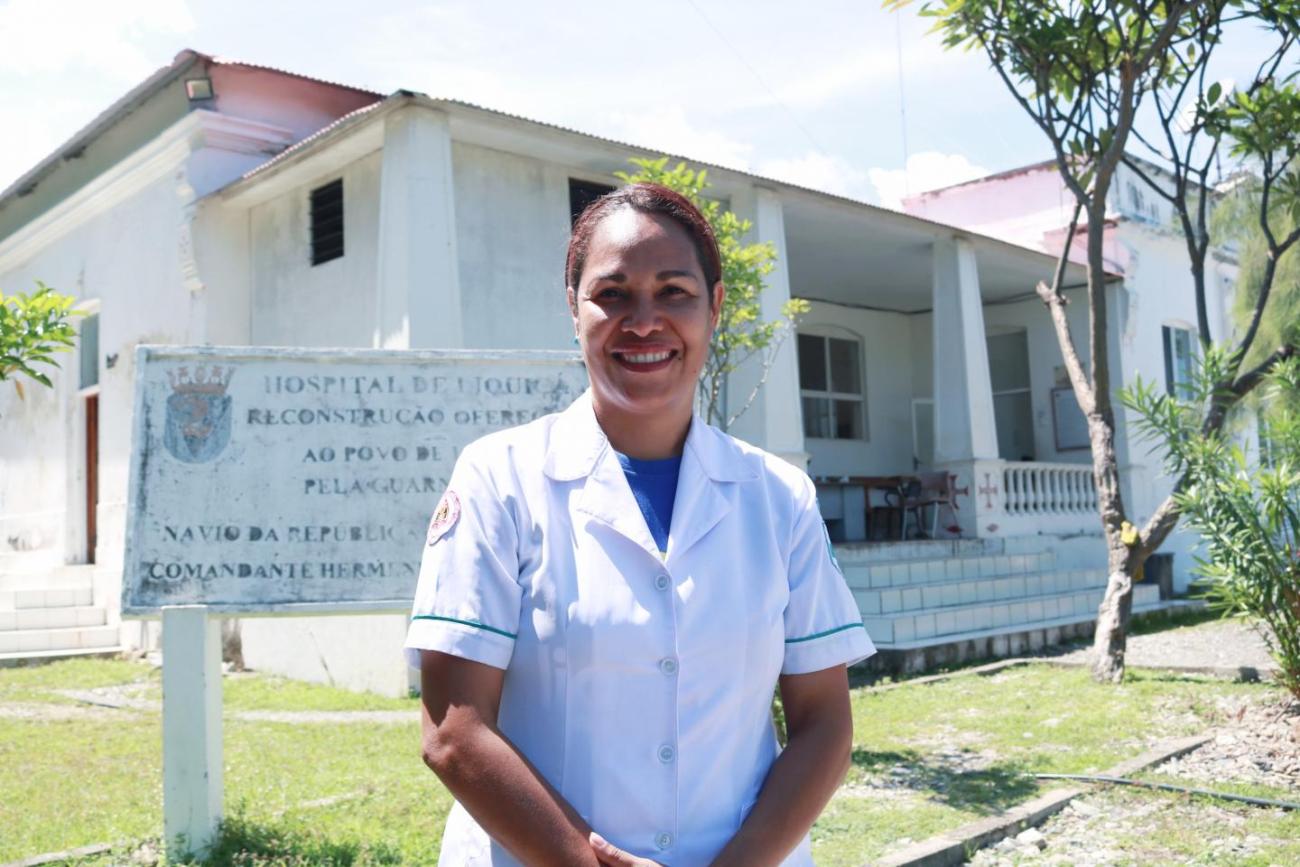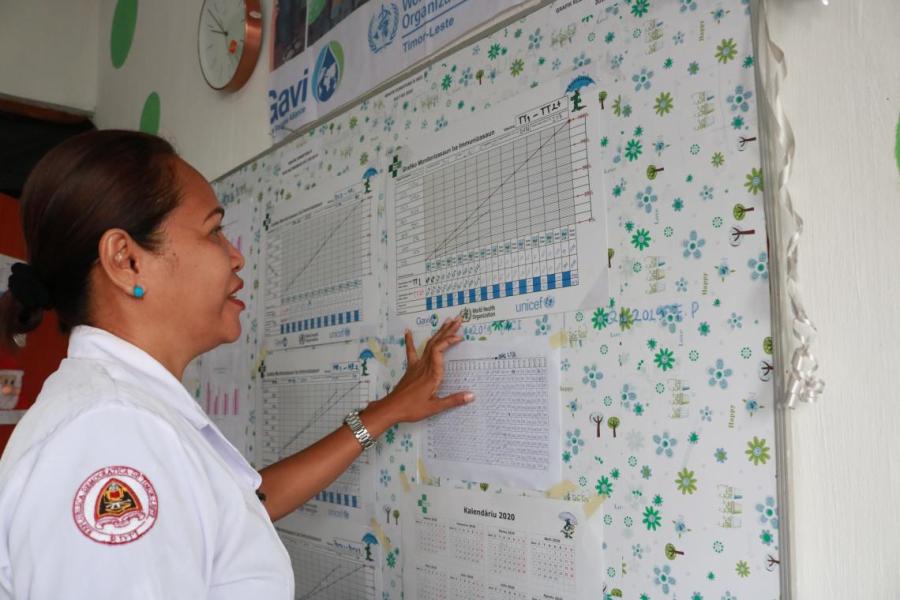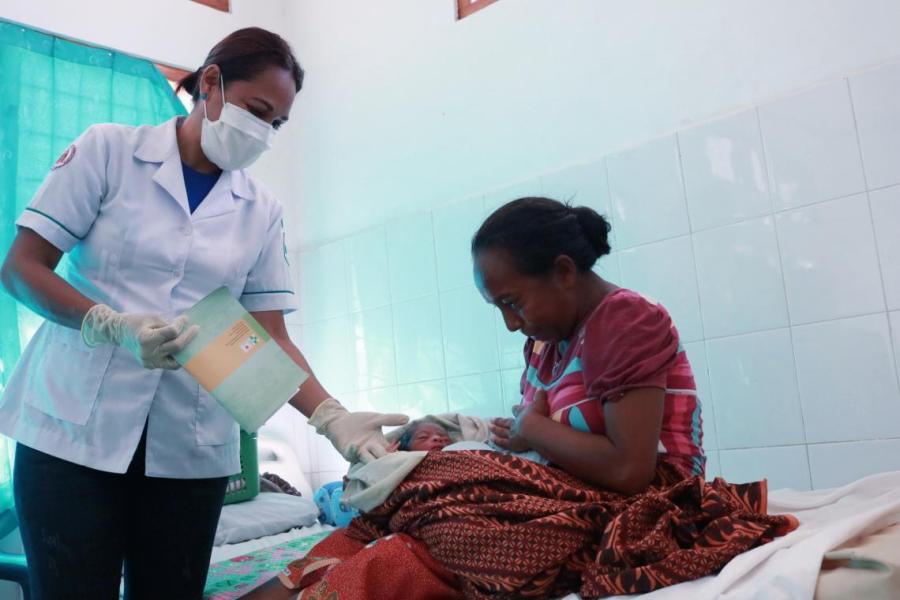The health care workers that keep mother and child health services functional in Timor-Leste

The health care workers that keep mother and child health services functional in Timor-Leste during the COVID-19 pandemic
In 2020, measures imposed to stop the spread of COVID-19 brought some services to a halt. While essential health services have recovered thanks to health care workers like Beatriz, the pandemic remains a threat to delivery.
Beatriz Filomena da Silva dos Santos is one of Timor-Leste’s 6,000 plus healthcare workers. As a midwife, she oversees maternal and child health services in Liquica’s three health centers, spread across the municipality that stretches along the coast westward from the capital, Dili.
Timor-Leste’s first case of COVID-19 was confirmed on 21 March 2020. The government announced a State of Emergency on 28 March, shutting borders and announcing a range of other measures to prevent the spread of the virus. These measures, and people’s fear of contracting the disease, had a negative impact on health services.
“The COVID-19 pandemic has had a huge impact on our health programmes here,” says Beatriz. “At first, we were forced to limit services, which had an impact on immunization and nutrition services in the health facility and on our outreach programmes in communities. Many children and pregnant mothers missed out on services they needed.”

But thanks to support from the MoH and quick and dedicated work by healthcare workers such as Beatriz, immunization rates and services for pregnant mothers recovered quickly.
“The government soon eased some restrictions and requested us to continue health services despite the extension of the State of Emergency,” says Beatriz. “We resumed full immunization and maternal care services in the health facility and went out into communities to track and immunize children who missed out on routine vaccinations and do checks on pregnant mothers who missed out on their regular appointments.

“As a mother and a healthcare worker, I know how important it is to have antenatal care and have children vaccinated against preventable diseases,” she adds. “We (health care workers) were all determined that children and mothers would not miss out on these essential services.”
Today, Beatriz is extremely happy to be able to continue providing regular healthcare services in Liquica municipality. However, as Timor-Leste currently experiences the worst of the COVID-19 crisis to date, with cases detected in Dili and other areas, , the impacts of the crisis are far-reaching and far from over. Despite these challenges, each day, health care workers like Beatriz continue to provide essential health care services to mothers and children across the country.
In this video, Beatriz explains the impact that the COVID-19 pandemic has had on the work she does in Liquica, and how UNICEF’s support has helped prepare health workers like herself to treat children and mothers with COVID-19 and other diseases.
UNICEF Timor-Leste/2021/Benevides
The health care workers that keep mother and child health services functional in Timor-Leste





